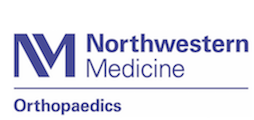|
|

|
« Back
Dad and both his brothers have all had disc problems ending up with surgery. My brother and I are both hale and hearty but we have jobs in construction that involve a lot of heavy lifting, pushing, and pulling. Are we doomed by genetics and occupation to follow in their footsteps?
|
|
Not necessarily. Studies show that disc degeneration and disc herniation have many factors that when combined together, increase the risk of problems. Age (and age-related changes) is a big part of the picture. Genetics and heredity probably has a role as well.
Although mechanical factors related to occupation is one feature, it only accounts for about 10 per cent of the degenerative changes that occur. We know this because there are so many more people who do not have a work history involving physical loading or resistance yet still develop disc problems.
Genetics has long been suspected in this disease process, but no one has been able to pinpoint the specifics. The hereditary factor has been reviewed again recently using a different research approach.
In this study, researchers used information collected in a genealogical database from the University of Utah to determined the influence of heredity on symptomatic lumbar disc disease.
This study may be the first step in getting closer to our understanding of inheritance as a possible etiology (causative factor). Over a million patients are included in this database. The software makes it possible to search for patients with lumbar degenerative disc disease within the same family.
The results showed a definite genetic link to lumbar degenerative disc disease in symptomatic patients. And because the condition was present in the first- and third-degree relatives, we know it's not just a matter of shared environment or exposure.
For clarity, we should define the degrees. First-degree refers to siblings (brothers and sisters). Second-degree includes relatives in a different generation such as parents, uncles, aunts, grandparents (or grandchildren). Third-degree relatives can be within the same generation such as first cousins. In fact, first-degree and third-degree relatives are usually in the same generation, whereas, second-degree is a different generation.
Risk of developing disc disease was greatest for the first- and third-degree relatives. So your father and his brothers (your uncles) are in the second-degree with less direct genetic links (at least according to this study).
Twin studies have previously shown the impact of genetics on lumbar degenerative disc disease and disc herniation. Other studies have shown that people who have a family history of disc herniations have more severe disc herniations themselves. Now this study adds support for a familial predisposition to lumbar disc disease.
Are you doomed to repeat the family pattern? There's an increased risk but it is not a 100 per cent guarantee that your family history and current work pattern spell disaster. Being aware of your risks may help you identify if a problem develops and get early treatment.
|
References:
|
|
|
« Back
|
|
|
|
*Disclaimer:*The information contained herein is compiled from a variety of sources. It may not be complete or timely. It does not cover all diseases, physical conditions, ailments or treatments. The information should NOT be used in place of visit with your healthcare provider, nor should you disregard the advice of your health care provider because of any information you read in this topic. |
 | All content provided by eORTHOPOD® is a registered trademark of Mosaic Medical Group, L.L.C.. Content is the sole property of Mosaic Medical Group, LLC and used herein by permission. |
|
